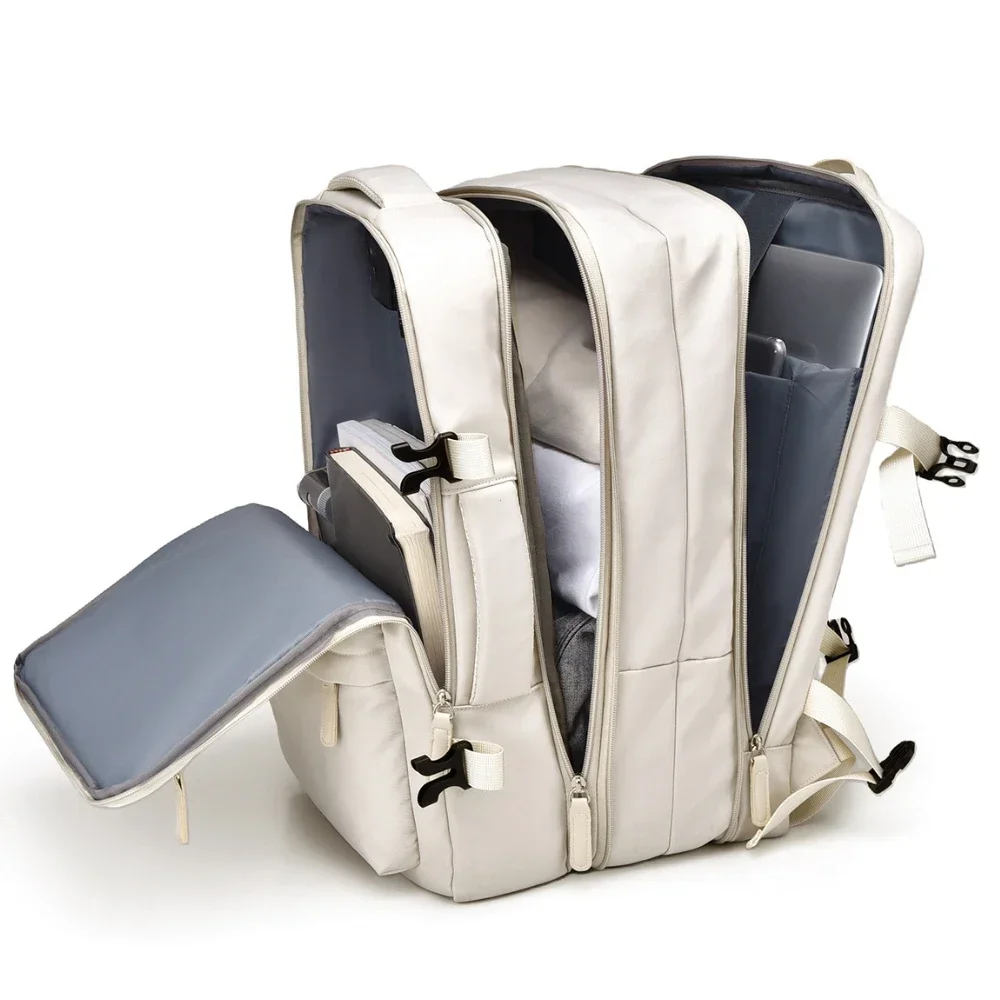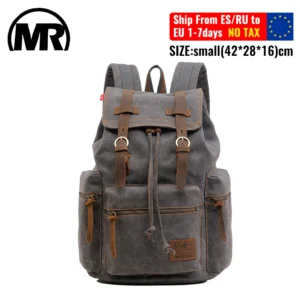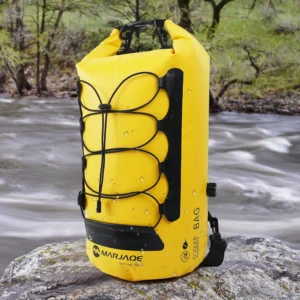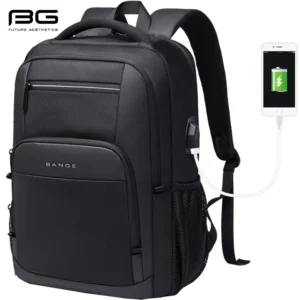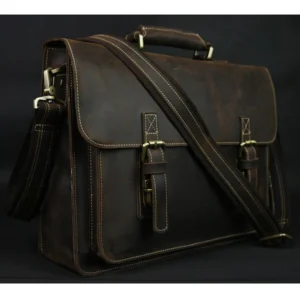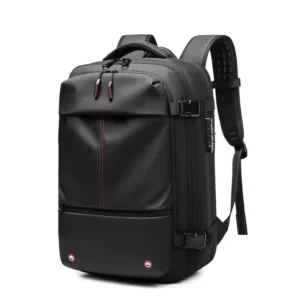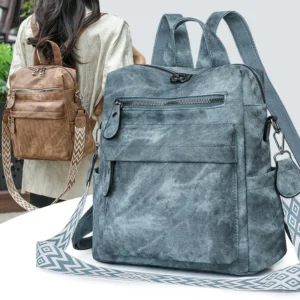Introduction: Understanding Airline Regulations for Your Leather Backpack
Air travel comes with many rules and regulations, and navigating the specifics for carry-on baggage can be challenging, especially when traveling with a leather backpack. Whether you’re a frequent flyer or an occasional traveler, understanding airline rules for your leather backpack is essential to ensure a smooth journey.
When it comes to carry-on luggage, airlines focus on two primary factors: size limitations and weight restrictions. Additionally, they distinguish between “carry-on bags” (intended for overhead bins) and “personal items” (designed to fit under the seat in front of you). Your leather backpack could fall into either category depending on its dimensions.
Leather backpacks have become increasingly popular for travel due to their durability, timeless style, and versatility. They offer a perfect blend of functionality and sophistication that many travelers appreciate. While the leather material itself rarely affects airline regulations directly, it can impact other considerations like weight and flexibility.
Throughout this guide, we’ll explore airline-specific rules, share practical tips for measuring your backpack, and provide strategies for ensuring compliance with various carrier policies. Understanding proper leather conditioning and waterproofing is also important to maintain your backpack during travel. For specific size considerations, our guide on leather carry-on backpack dimensions provides detailed information.
Remember that airline policies can change, so always verify current regulations before your flight.
The Difference Between Carry-On Bags and Personal Items
Understanding the distinction between carry-on bags and personal items is crucial for air travel with your leather backpack.
Carry-on bags are larger items designed to be stored in the overhead compartments of the aircraft. These typically have more stringent size restrictions but offer more storage capacity. A larger leather backpack would fall into this category.
Personal items, on the other hand, must be small enough to fit completely under the seat in front of you. Examples include smaller backpacks, purses, laptop bags, or briefcases. A compact leather backpack can often qualify as a personal item.
Most airlines allow passengers to bring one carry-on bag and one personal item on board, but this policy varies, especially among budget airlines or with basic economy fares.
| Feature | Carry-On Bag | Personal Item |
|---|---|---|
| Storage Location | Overhead bin | Under seat in front of you |
| Typical Size Range | 22” x 14” x 9” | 18” x 14” x 8” |
| Common Examples | Large backpacks, rolling luggage, duffel bags | Small backpacks, purses, laptop bags, briefcases |
| Number Allowed | Usually one | Usually one |
Budget airlines often charge for carry-on bags while allowing a free personal item. Additionally, some airlines’ basic economy fares restrict passengers to just a personal item, charging extra for carry-on luggage that goes in the overhead bin.
When choosing which type of item to bring, consider the carry-on leather backpack options that are specifically designed to comply with airline regulations.
How Leather Material Affects Your Carry-On Experience
While airlines don’t have specific rules about bag materials, the leather composition of your backpack does influence your travel experience in several important ways.
Leather backpacks offer distinct advantages for air travelers:
- Flexibility: Quality leather has natural give, allowing your backpack to compress more easily into airline sizers and tight overhead compartments compared to rigid hard-shell luggage
- Durability: Leather stands up exceptionally well to the rigors of frequent travel, resisting tears and abrasions common with constant handling
- Professional appearance: A refined leather backpack maintains a business-appropriate look, perfect for travelers heading straight to meetings from the airport
- Aging gracefully: Unlike synthetic materials that wear out, full-grain leather develops a rich patina over time, looking better with age and use
However, there are some considerations to keep in mind:
Leather backpacks typically weigh slightly more than those made from synthetic materials. This extra weight, while minimal, could be significant for airlines with strict weight limitations, particularly international carriers.
Proper conditioning of your leather backpack ensures it maintains its appearance and flexibility during travel. The material’s natural suppleness can be particularly advantageous when dealing with airline sizers at check-in, as a leather backpack can often compress to fit even when slightly overpacked.
Standard Carry-On and Personal Item Size Limitations
While there isn’t a universal standard for carry-on luggage dimensions, most airlines follow similar guidelines. Understanding these general parameters helps you choose an appropriate leather backpack for air travel.
For carry-on bags, the typical size limit hovers around 22 x 14 x 9 inches (56 x 36 x 23 cm). This measurement includes any handles, wheels, and external pockets. These bags are designed to fit in the overhead compartments on most commercial aircraft.
Personal items generally need to fit under the seat in front of you and typically cannot exceed dimensions of approximately 18 x 14 x 8 inches (45 x 35 x 20 cm). This category often includes smaller backpacks, purses, and laptop bags.
Weight restrictions vary significantly by airline:
* Many U.S. domestic carriers don’t explicitly state weight limits for carry-on luggage
* Most require that passengers can lift their bag into the overhead bin without assistance
* International airlines typically impose stricter weight limits, often between 15-26 lbs (7-12 kg)
When measuring a backpack, remember that its soft, irregular shape can be both an advantage and a challenge. Always measure at the widest points when the bag is fully packed, including any bulging pockets or protruding features. Height should be measured from the bottom to the top at the tallest point, width at the widest section, and depth from front to back at the deepest part.
For backpacks designed with travel considerations in mind, explore our leather travel backpacks collection, which balances style with airline compliance.
Airline-Specific Carry-On Backpack Regulations: Domestic Airlines
Different airlines have their own specific rules regarding carry-on baggage. Below is a comprehensive comparison of major U.S. domestic carriers’ policies for carry-on backpacks:
| Airline | Carry-On Dimensions | Personal Item Dimensions | Weight Limit | Special Notes |
|---|---|---|---|---|
| American Airlines | 22” x 14” x 9” (56 x 36 x 23 cm) | 18” x 14” x 8” (45 x 36 x 20 cm) | Not specified | Basic Economy allows personal item only |
| Delta Air Lines | 22” x 14” x 9” (56 x 36 x 23 cm) | 18” x 14” x 8” (45 x 36 x 20 cm) | Not specified | All fares include carry-on allowance |
| United Airlines | 22” x 14” x 9” (56 x 36 x 23 cm) | 17” x 10” x 9” (43 x 25 x 22 cm) | Not specified | Basic Economy allows personal item only |
| Southwest Airlines | 24” x 16” x 10” (61 x 41 x 25 cm) | 18.5” x 8.5” x 13.5” (47 x 22 x 34 cm) | Not specified | Most generous size allowance |
| JetBlue | 22” x 14” x 9” (56 x 36 x 23 cm) | 17” x 13” x 9” (43 x 33 x 23 cm) | Not specified | Blue Basic fare may limit carry-on |
| Frontier Airlines | 24” x 16” x 10” (61 x 41 x 25 cm) | 18” x 14” x 8” (45 x 36 x 20 cm) | 35 lbs (15.9 kg) | Charges fee for carry-on bags |
| Spirit Airlines | 22” x 18” x 10” (56 x 46 x 25 cm) | 18” x 14” x 8” (45 x 36 x 20 cm) | 40 lbs (18.1 kg) | Charges fee for carry-on bags |
Notable policies to be aware of:
Southwest Airlines offers the most generous size allowance for carry-on bags among major U.S. carriers, making it a good choice if you have a slightly larger leather backpack.
Budget airlines like Frontier and Spirit allow larger or heavier bags but charge additional fees for anything that doesn’t fit under the seat. These fees often range from $35-$65 depending on when you pay (online, at check-in, or at the gate).
Many airlines have introduced Basic Economy fare classes that restrict passengers to only a personal item, charging extra for a full-sized carry-on bag. This is particularly common on American Airlines and United Airlines, so check your fare type before packing.
For men looking for travel-friendly options that meet these requirements, our men’s leather travel backpack collection offers stylish solutions designed with airline compliance in mind.
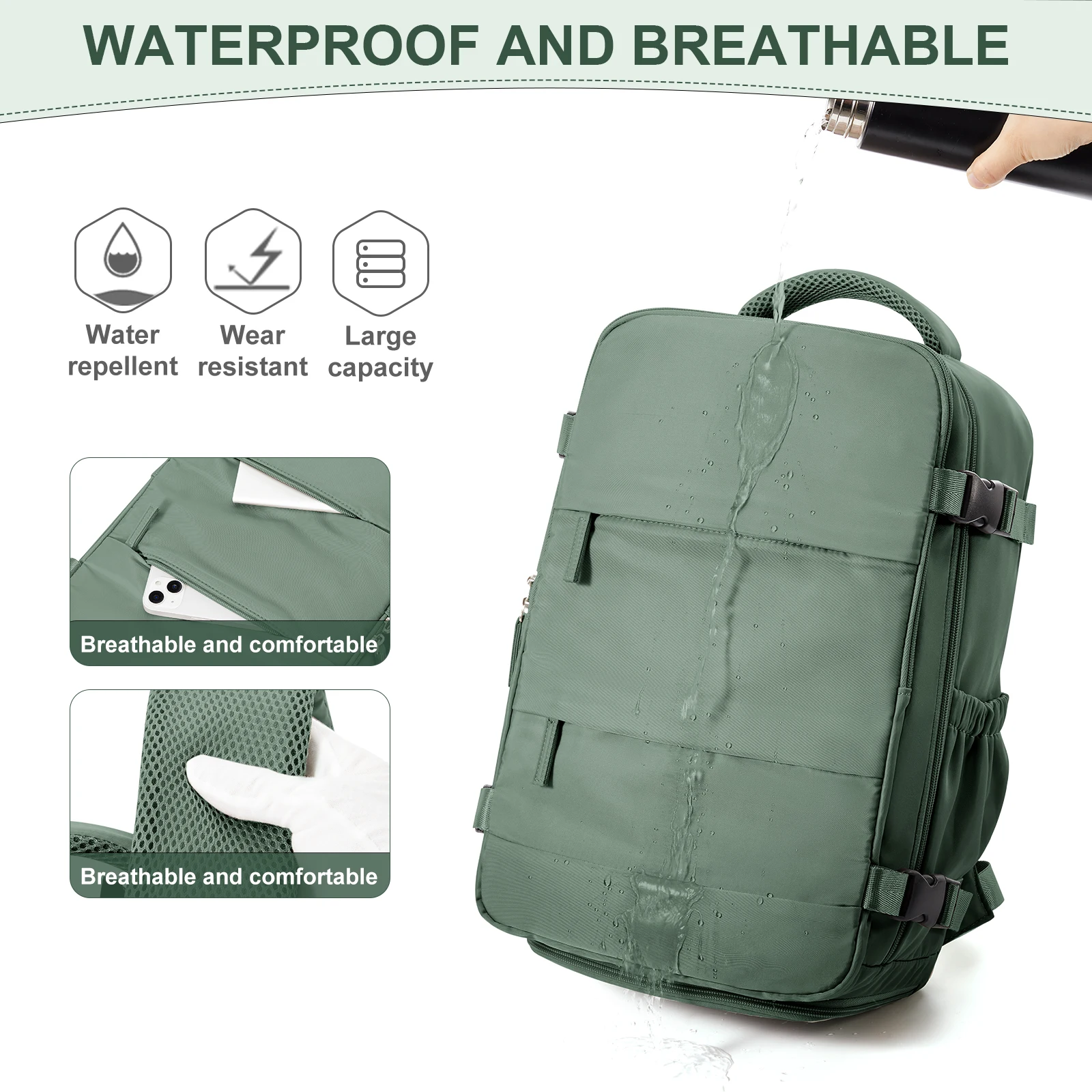
Airline-Specific Carry-On Backpack Regulations: International Airlines
International airlines often have different—and sometimes stricter—regulations for carry-on luggage compared to their U.S. counterparts. Here’s a breakdown of major international carriers’ policies:
| Airline | Carry-On Dimensions | Personal Item Dimensions | Weight Limit | Special Notes |
|---|---|---|---|---|
| Air Canada | 21.5” x 15.5” x 9” (55 x 40 x 23 cm) | 17” x 13” x 6” (43 x 33 x 16 cm) | 22 lbs (10 kg) | Must be able to lift bag unassisted |
| British Airways | 22” x 18” x 10” (56 x 45 x 25 cm) | 16” x 12” x 6” (40 x 30 x 15 cm) | 51 lbs (23 kg) | Weight limit includes both bags combined |
| Lufthansa | 21.7” x 15.7” x 9” (55 x 40 x 23 cm) | 15.7” x 11.8” x 3.9” (40 x 30 x 10 cm) | 17.6 lbs (8 kg) | Economy class has stricter weight limits |
| Emirates | 22” x 15” x 8” (55 x 38 x 20 cm) | Not specified separately | 15 lbs (7 kg) | Total weight of all hand baggage |
| Ryanair | 21.7” x 15.7” x 7.9” (55 x 40 x 20 cm) | 15.7” x 9.8” x 7.9” (40 x 25 x 20 cm) | 22 lbs (10 kg) | Non-priority customers: personal item only |
| EasyJet | 22” x 17.7” x 9.8” (56 x 45 x 25 cm) | 15.7” x 11.8” x 7.1” (40 x 30 x 18 cm) | No weight limit | Standard fare allows only personal item |
Key international considerations:
Weight enforcement is generally stricter on international carriers, particularly on long-haul flights. While U.S. airlines rarely weigh carry-on bags, European and Asian carriers frequently do, especially at busy airports during peak travel times.
Budget European airlines like Ryanair and EasyJet are known for their strict enforcement of both size and weight limits. Their staff regularly check bags at the gate using sizers, and oversized bags often incur substantial fees (sometimes exceeding $60).
Regional variations exist across different parts of the world. Asian carriers like Singapore Airlines and ANA tend to have stricter weight limits but may be slightly more flexible on dimensions. Middle Eastern carriers like Emirates and Qatar Airways often have weight limits but provide generous baggage allowances for premium cabins.
For women travelers looking for appropriately sized options, our women’s leather travel backpack collection features designs that meet international airline requirements.
How to Measure Your Leather Backpack Correctly
Accurately measuring your leather backpack is essential to avoid surprises at the airport. Follow these steps to ensure your measurements are correct:
- Pack your backpack with typical travel items first—empty measurements won’t reflect the true size when in use
- For height: Measure from the bottom of the bag to the highest point at the top
- For width: Measure across the backpack at its widest point
- For depth: Measure from the front to the back at its deepest point
- Include any external components like pockets, handles, or decorative elements
- Round up to the nearest half-inch or centimeter to account for any measuring inaccuracies
When measuring an irregularly shaped backpack, always use the largest dimension for each measurement. A flexible measuring tape works best for getting accurate measurements around curves and corners.
Remember that airlines measure the external dimensions, not the internal capacity. The thickness of the leather itself, along with any padding or structural support, contributes to the overall size.
Most airports have baggage sizers near check-in counters and at gates. These metal frames represent the maximum allowed dimensions for carry-on luggage. If you’re uncertain about your backpack’s compliance, try placing it in these sizers before reaching the boarding area.
Knowing how to waterproof your leather bag can also help protect your belongings during travel, especially if your backpack ends up being gate-checked due to size issues or full flights.
Packing Strategies for Compliance with Airline Rules
Smart packing can help your leather backpack comply with airline regulations while maximizing your available space:
Use compression techniques: Roll clothes instead of folding them to save space and reduce wrinkles. Compression packing cubes can further reduce the bulk of clothing.
Utilize all compartments efficiently: Many leather backpacks have multiple organizational pockets. Distribute items evenly throughout these compartments rather than overstuffing one section.
Pack heavier items at the bottom: Place heavier items like shoes or toiletry bags closest to your back and at the bottom of the backpack. This creates better weight distribution for comfort and helps the bag maintain its shape.
Use the outside-in method: Pack items you’ll need during the flight (like headphones, snacks, or reading materials) in easily accessible outer pockets.
Wear your bulkiest items: Save space by wearing your heaviest jacket and shoes on the plane rather than packing them.
If your backpack is slightly oversized, try these compliance strategies:
- Don’t overstuff the bag—a partially filled backpack can compress more easily to fit into sizers
- Use compression straps if your backpack has them to reduce bulging
- Remove any unnecessary padding or inserts that add bulk without providing essential protection
- Keep the bag slightly under-packed to maintain flexibility when placing it in overhead compartments
Understanding how to organize your leather backpack effectively can make the difference between a smooth boarding process and having to check your bag at the gate.
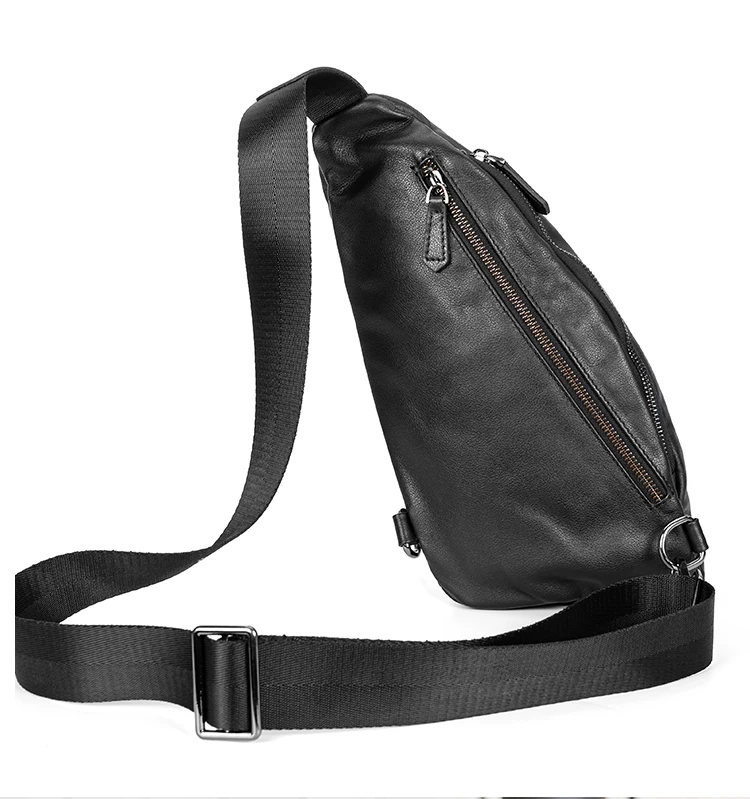
What to Expect at the Airport: Screening and Boarding Procedures
Knowing what to expect when traveling with your leather backpack can help you navigate airport procedures more efficiently:
At Check-In:
* Some airlines may visually inspect or measure your backpack at the check-in counter
* Staff might ask you to place your backpack in a sizer if it appears larger than permitted
* Weight checks are more common with international carriers than domestic airlines
At Security Screening:
* You’ll need to remove your laptop and other large electronics from your backpack
* Liquids in containers larger than 3.4 oz (100 ml) are not permitted through security
* Some airports require removing all electronics larger than a cell phone
* The leather material of your backpack won’t trigger any special screening procedures
At the Boarding Gate:
* Gate agents may conduct random checks when the flight is full
* On crowded flights, airlines sometimes gate-check carry-on bags free of charge
* Priority boarding passengers typically have a better chance of finding overhead space for their bags
Items that don’t count against your carry-on allowance include:
* Outer garments like coats and hats
* Umbrellas
* Reading materials obtained after security
* Food purchased in the terminal
* Medical devices and mobility aids
* Items purchased at duty-free shops (though these may be subject to liquid restrictions)
Understanding these procedures helps ensure your leather carry-on backpacks for travel experience is hassle-free and enjoyable.
Consequences of Non-Compliance with Carry-On Regulations
When your backpack doesn’t meet airline requirements, several consequences may follow:
Gate checking: If your backpack exceeds size limits, you’ll likely need to check it at the gate. While often free, this means surrendering your bag just before boarding.
Additional fees: Some airlines charge for gate-checked bags, with fees ranging from $25 to $65 depending on the carrier and whether it’s a domestic or international flight.
Boarding delays: Resolving baggage issues at the gate can slow the boarding process and create stress before your flight.
Risk to valuables: Gate-checked bags aren’t always handled with the same care as carry-ons, potentially putting electronics, fragile items, or valuables at risk.
Separation from essential items: Once checked, you won’t have access to anything in your backpack during the flight.
Enforcement varies significantly by airline, airport, and how full the flight is. Budget carriers typically enforce size and weight limits more strictly, while major carriers might be more lenient when flights aren’t full.
To avoid issues at the gate:
- Measure your backpack before leaving home
- Check your airline’s specific requirements
- Don’t overstuff your backpack, especially in visible ways
- Be prepared to demonstrate that your bag fits in the sizer if asked
Knowing how to perform DIY leather care for travel backpacks can help maintain your bag’s appearance and condition, regardless of whether it travels in the cabin or gets checked.
Special Considerations for Leather Backpacks with Electronics
Business travelers often carry various electronics in their leather backpacks, requiring special attention during air travel:
When passing through TSA screening, you’ll typically need to remove laptops and tablets larger than 6 inches from your backpack and place them in separate bins. However, TSA PreCheck members may be able to keep electronics in their bags during screening.
For efficient security screening:
- Store your laptop in an easily accessible compartment
- Consider using a TSA-friendly backpack with a lay-flat laptop section
- Keep cables organized in pouches rather than loosely in your bag
- Power down devices completely before screening (not just sleep mode)
To protect electronics in your leather backpack:
- Use padded sleeves for additional protection
- Keep liquids in separate compartments from electronics
- Place electronics in the center of your bag, surrounded by softer items
- Consider waterproofing treatments for your leather backpack to protect against unexpected rain
Leather backpacks with dedicated laptop compartments offer significant advantages, including:
* Better weight distribution
* Enhanced protection through specialized padding
* Easier access during security screening
* Quick retrieval during flight for work or entertainment
14 Inch Leather Laptop Backpack, Brown Leather Backpack, Men's Leather Backpack, Vintage Leather Backpack
Price range: $177.28 through $199.12 Select options This product has multiple variants. The options may be chosen on the product pageCarry On Leather Backpack, Roll Top Leather Backpack
Price range: $77.76 through $96.48 Select options This product has multiple variants. The options may be chosen on the product pageDesigner Men's Backpack, Men's Leather Laptop Backpack, Men's Leather Work Backpack
Price range: $158.04 through $160.04 Select options This product has multiple variants. The options may be chosen on the product page15 Inch Leather Laptop Backpack, Leather Briefcase Backpack
$332.96 Select options This product has multiple variants. The options may be chosen on the product page17 Inch Leather Laptop Backpack, Men's Leather Travel Backpack, Men's Leather Work Backpack
Price range: $106.28 through $143.88 Select options This product has multiple variants. The options may be chosen on the product pageBlack Leather Backpack, Small Leather Backpack, Women's Leather Backpack
Price range: $112.96 through $116.12 Select options This product has multiple variants. The options may be chosen on the product page
Our leather laptop backpacks are specifically designed with these travel considerations in mind, offering protection while meeting airline requirements.
Additional Items Allowed Beyond Your Backpack Allowance
Beyond your carry-on backpack and personal item, airlines generally allow these additional items at no extra charge:
Medical devices and medications: Including CPAP machines, breast pumps, portable oxygen concentrators, and prescription medications (though medications should generally be in their original labeled containers)
Child-related items: Diaper bags, car seats, and strollers (typically checked at the gate and returned at the arrival gate)
Mobility aids: Crutches, canes, walkers, wheelchairs, and other assistive devices
Duty-free purchases: Items bought in the secure area of the airport after passing through security (though liquid restrictions may apply on connecting flights)
Food items: Meals or snacks purchased after security clearance
Outer garments: Coats, hats, umbrellas, and scarves
Reasonable accommodation items: Religious items, special pillows for medical conditions, or comfort items for children
Most airlines do not count these items against your carry-on or personal item allowance, but they still expect you to manage these items without assistance. Additionally, some items may need to be stowed during takeoff and landing per FAA regulations.
For travelers needing additional organization solutions, our guide on organizing leather backpacks provides tips to maximize space efficiency.
Frequently Asked Questions About Traveling with Leather Backpacks
Can a large leather backpack be considered a personal item?
A leather backpack can qualify as a personal item if it fits under the seat in front of you and meets the airline’s specific dimensions for personal items (typically around 18 x 14 x 8 inches). Larger backpacks usually need to be classified as your carry-on item instead.
What if my leather backpack is slightly over the size limit?
If your backpack is only slightly oversized, you may still be able to use it as a carry-on. Leather backpacks have the advantage of flexibility, allowing them to compress somewhat into sizers. However, if your flight is full, agents are more likely to strictly enforce size restrictions. Consider under-packing to allow for compression.
Do international flights have different rules for backpacks?
Yes, international carriers often have stricter weight limits (typically 15-26 lbs) for carry-on items compared to domestic airlines. Some international airlines also have smaller size allowances. European budget airlines like Ryanair and EasyJet are particularly strict about enforcing their baggage policies.
Do airlines always weigh carry-on bags?
Not always. U.S. domestic airlines rarely weigh carry-on bags, focusing primarily on size. However, international carriers more frequently check weight, especially on long-haul flights or at busy airports. Even when weighing isn’t standard procedure, agents have discretion to weigh bags that appear heavy.
Are there any specific TSA rules for leather bags?
TSA doesn’t have material-specific rules for leather bags. However, like all carry-on luggage, leather backpacks must go through X-ray screening. The standard 3-1-1 liquids rule applies to contents (containers of 3.4 oz or less in a single quart-sized clear bag), and laptops typically need to be removed during screening unless you have TSA PreCheck.
What items should I remove from my backpack before boarding?
Keep essential items you’ll need during the flight (like medications, headphones, reading materials, or snacks) in easily accessible pockets. Store your boarding pass and ID where you can quickly retrieve them. Consider removing valuables if your bag needs to be gate-checked.
For business travelers looking for versatile options, our leather briefcase backpack collection offers professional styling with travel-friendly features.
Tips for Choosing a Flight-Friendly Leather Backpack
If you’re in the market for a new leather backpack for air travel, consider these key features:
Right-sized dimensions: Look for backpacks specifically designed to meet airline carry-on requirements. Ideal dimensions stay under 22 x 14 x 9 inches for carry-ons or 18 x 14 x 8 inches for personal items. Even an inch can make the difference between smooth boarding and gate-checking.
Lightweight construction: Start with a lightweight base. While leather naturally weighs more than synthetic materials, choose designs that minimize unnecessary weight through thoughtful construction. Every ounce matters, especially with international airlines’ weight restrictions.
Smart compartment design: Multiple organized compartments are more efficient than one large space. Look for dedicated laptop sleeves, quick-access pockets for travel documents, and separate compartments for electronics and liquids.
Compression features: External compression straps allow you to tighten and secure your load, potentially reducing the bag’s overall dimensions when needed to fit in sizers.
Flexible materials: Full-grain leather offers natural flexibility while maintaining durability. This flexibility helps when fitting your backpack into tight overhead bins or under seats.
Durable hardware: Quality zippers, stitching, and hardware ensure your backpack withstands the rigors of frequent travel. Look for YKK zippers and reinforced stress points.
Summit Carry’s small leather backpack options are particularly well-suited for travelers needing a bag that easily complies with personal item restrictions while maintaining a sophisticated appearance.
By selecting a properly sized leather backpack and understanding airline policies, you can travel with confidence knowing your bag meets requirements while offering the style and functionality you need.
